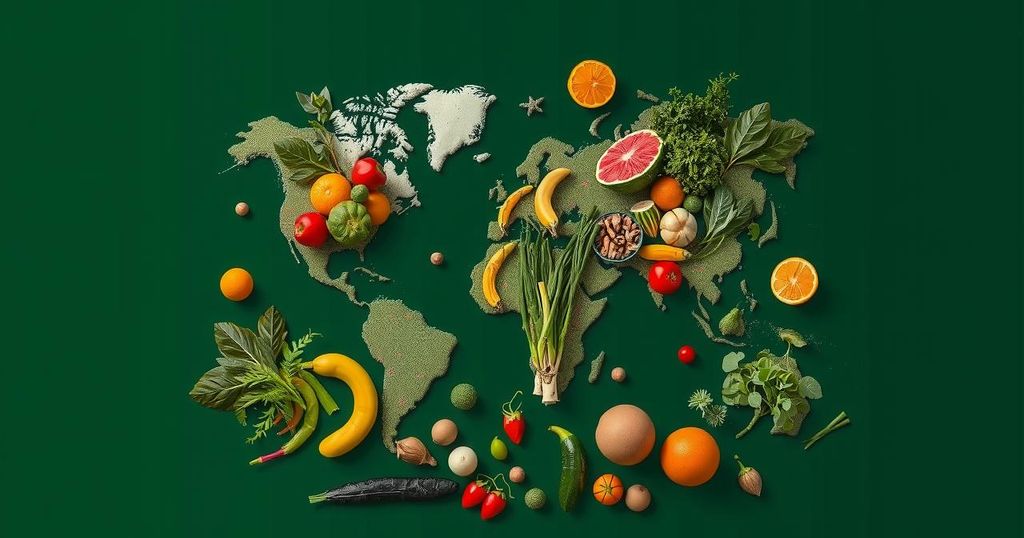At COP29, the TAPP Coalition called for a global meat tax coupled with subsidies for vegetables to combat climate change by reducing greenhouse gas emissions. Criticizing countries like the U.S. and the UK as ‘laggards,’ TAPP urged key nations to implement pricing mechanisms for agri-food systems. Cop29, taking place in Azerbaijan, attracted attention due to its geopolitical implications, including representations from controversial regimes like Afghanistan’s Taliban government.
At the 2024 U.N. Climate Change Conference (COP29), the TAPP Coalition called for the implementation of a global tax on meat to address climate change challenges. TAPP advocates highlighted that such a tax, combined with subsidies for vegetables, could effectively reduce the overconsumption of animal proteins and lower greenhouse gas emissions from agriculture. Willem Branten, a TAPP policy officer, emphasized the importance of incorporating these dietary changes into COP29’s closing statements, urging influential nations, including the EU Commission and China, to lead this initiative. The coalition criticized several countries, including the United States, Australia, Canada, and the United Kingdom, labeling them as “laggards” in adopting sustainable food pricing policies. In contrast, TAPP praised Switzerland, Denmark, and the EU Commission for their proactive measures. The ongoing COP29 in Baku, Azerbaijan, addresses critical climate issues and features participants from various states, some facing humanitarian concerns, such as Afghanistan under Taliban rule. President Joe Biden opted not to attend the conference but sent senior officials to represent U.S. interests in energy and climate discussions. TAPP’s appeal also followed a report from the U.N. Food and Agriculture Organization (FAO), which evaluated the potential impacts of taxing certain food items, including meat. This initiative was accompanied by the call for increased vegetable subsidies. Branten reiterated, “We believe that COP29 and UNFCCC [United Nations Framework Convention on Climate Change] conferences thereafter can only be successful if the closing statement includes transitioning away from animal protein overconsumption according to national or global dietary guidelines by implementing greenhouse gas emission pricing mechanisms in agri-food systems.” He urged leading organizations and countries to adopt harmonized pricing mechanisms to facilitate these transitions. COP29 commenced against a backdrop of geopolitical challenges in host nation Azerbaijan, which has faced accusations from Amnesty International regarding its humanitarian practices. In this context, studies highlighting increased private jet usage related to U.N. climate events surfaced as a point of concern. Despite President Biden’s absence, significant discussions are anticipated, as delegates from countries previously isolated, like Afghanistan, engage in dialogue for the first time since the Taliban’s return to power in 2021. The TAPP Coalition has not yet provided additional comments following its conference presence.
The call for a global meat tax by the TAPP Coalition at COP29 represents a strategic shift towards sustainable food policies aimed at mitigating climate change. With agriculture accounting for a substantial portion of global greenhouse gas emissions, advocating for a meat tax alongside vegetable subsidies could lead to significant reductions in these emissions. This confrontation between progressive and lagging nations regarding food pricing strategies underscores the necessity for global collaboration in climate action efforts, as emphasized by the TAPP Coalition during COP29.
In summary, the TAPP Coalition’s insistence on taxing meat as a means to fight climate change at COP29 reflects a broader movement towards sustainable agricultural practices. By urging the establishment of a global meat tax and advocating for vegetable subsidies, TAPP aims to influence dietary trends that could significantly lower greenhouse gas emissions. As nations gather at COP29, the call for comprehensive food pricing policies becomes ever more relevant, particularly as the need for climate action and international cooperation intensifies.
Original Source: www.shorenewsnetwork.com






